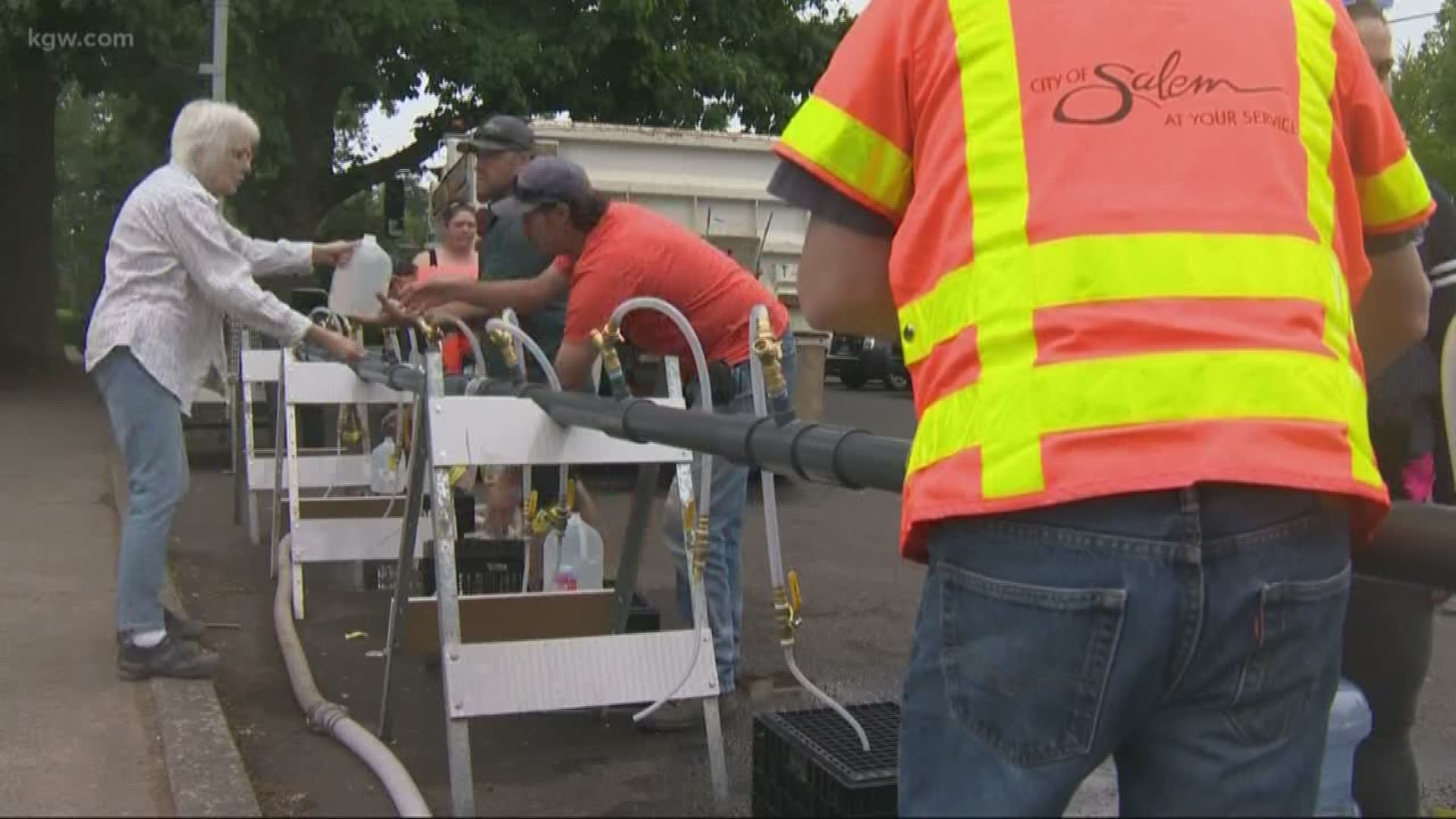The toxic water pouring from Salem taps has sent businesses in the city scrambling for nearly two week to reassure customers, find alternate water sources or simply stop producing.
Companies as big as food processing giant NORPAC and as hyper-local as Walery's Premium Pizza in West Salem are searching for ways to cope.
“I don’t think I could sleep at night if I harmed a customer,” said restaurant owner Dave Walery.
The drinking water advisory is for those under the age of 6, pregnant women, women who are nursing and those with compromised immune systems and kidney and liver illnesses. Tap water in Salem and Turner is considered safe for everyone else.
The Oregon Department of Agriculture didn't ban businesses from using the tap water, but issued advisories that food service and retail food establishments should print and post the notice near areas with food, beverages and ice that contain tap water.
Restaurants and coffee shops around Salem have taken different approaches.
Some have temporarily eliminated products with tap water from their menus. Others continue serving them — soda drinks with ice, for example — but with written and verbal warnings to let their customers choose.
Companies that use tap water as a minor ingredient in production — such as rinsing or equipment cleaning — may operate normally. Those that produce food and beverages with tap water as an ingredient may postpone production until the advisory is lifted or use an alternative water source, ODA officials said.
NORPAC
The NORPAC processing facilities in Salem and Stayton have continued production since the first advisories about the water quality.
But it is not shipping anything until it can test its products.
Like many food processors in the Willamette Valley, water is used only as a secondary element in its finished product.
“Through an abundance of caution we are conducting testing on products that came in contact with the water during the relevant time frame. However, water was not used as an ingredient in any products, only as a processing aid. Products are on hold until testing results are complete,” NORPAC Foods said in a statement to the Statesman Journal.
Breweries
At least two local brewers have halted production, reluctant to use even slightly toxic water in their beer.
“Our commitment to quality is just top notch,” said Ian Croxall, co-owner of Santiam Brewing. “To brew with water that’s just a little bit toxic does not match our model.”
Croxall said that they have ordered a $4,000 water filtration system that will allow them to brew irrespective of advisories if water contamination continues to be a problem through the summer. The filtration system is expected to arrive by the end of the week, he said.

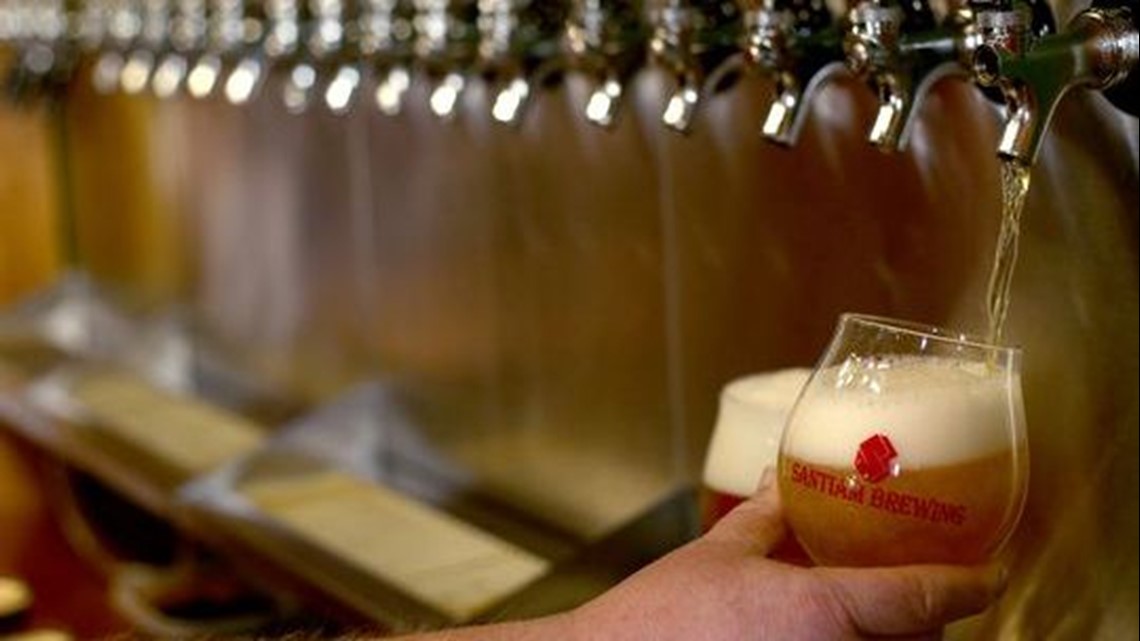
Santiam Brewing halted production after both advisories, only producing one double batch between the lifting of the first advisory and placing of the second. Croxall said they’ve missed several scheduled brews so far.
“We don’t want to be in a position where we have to defend why we’re brewing beer with toxic water,” Croxall said.
Salem Ale Works also decided to suspend production as the alerts came down from the city.
Co-founder Jake Bonham said they are exploring options that would allow them to continue brewing, such as a filtration system or sourcing water from outside the affected area.
“As a local craft brewery in Salem we take great pride in the quality of the local water and its ability to produce great beer,” Bonham said in an email. “Once the advisories are lifted we will re-initiate production.”
Walery's Premium Pizza
The key ingredient in the two more important menu items at Walery's Premium Pizza – pizza and soda – is water.
Since the water advisories were put in place, Dave Walery has been buying bottled water for making dough and rinsing vegetables for his pizza.

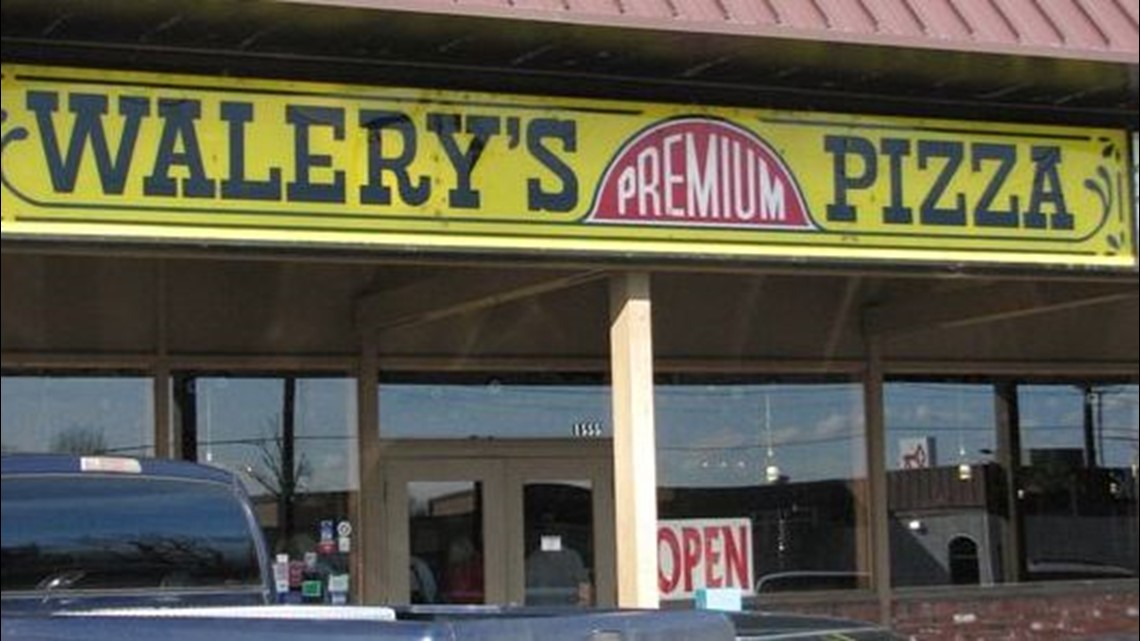
Walery said that on Thursday – not the busiest day of the week for the restaurant – he went through 60 two-liter bottles of soda.
“Probably two out of three people ask, 'What are you doing?'” Walery said. “'What am I drinking? What water is in your dough?'
“I’m doing what I think is right to do and that’s to make sure the customer is good no matter what their age or health is.”
Walery said his restaurant is already running out of storage space for bottled water, and he was only stocking up to make it through the weekend.
Walmart
When the initial drinking water advisory was issued May 29, the Walmart stores in Salem were put on the company’s emergency store list and were receiving shipments of bottled water that night.
It still took them two days to have enough water to satiate demand.
When the second drinking water advisory was issued Wednesday, the South Commercial Walmart became a major provider for those in the area seeking to purchase drinking water.

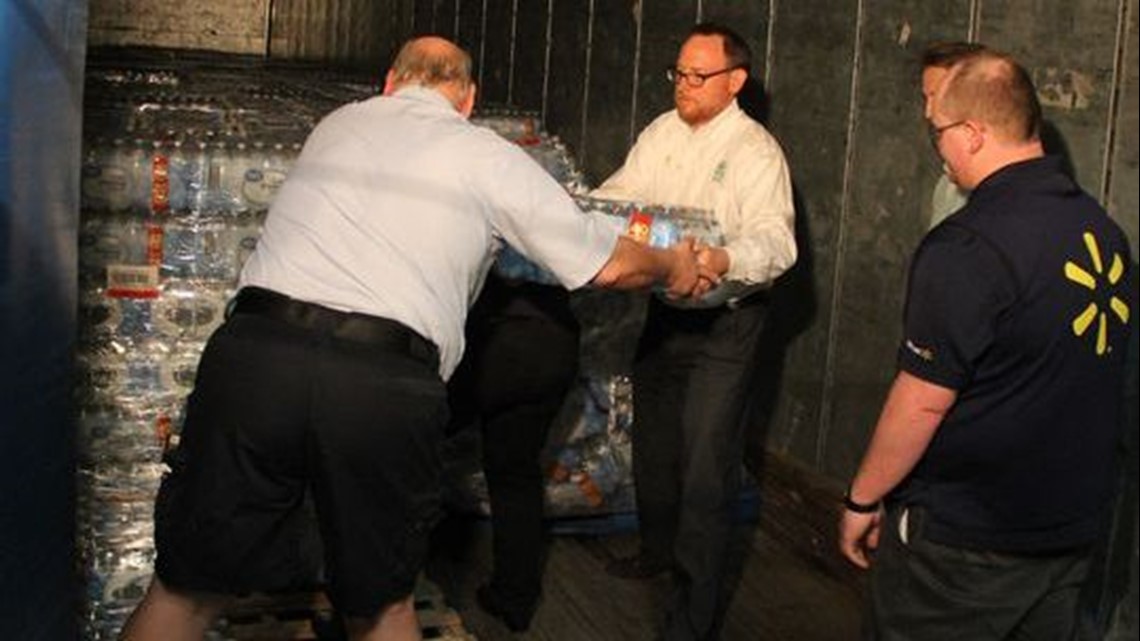
The Subway inside the Walmart immediately purchased water as did the Dutch Bros coffee shop in the parking lot to stay in operation.
“The entire Beehive food pod has been in our store the last three days buying water so they could keep the food trucks going,” said Sarah Keady, store manager of the South Commercial Walmart.
“It’s an amazing way to look at it when you’re out there." she said. "You see businesses that are rushing ... to keep their livelihood going, not only to take care of their family, but to take care of Salem.”
Marion-Polk Food Share
Some assisted living facilities have struggled to have enough water to serve their clients, many of whom fall under the advisory.
Many seniors who can't get to the water filling stations around Salem have had to seek assistance.
Companies such as Walmart, Fred Meyer, Trader Joe’s and WinCo have donated bottled water to Marion-Polk Food Share, and they have been distributed to those in need.

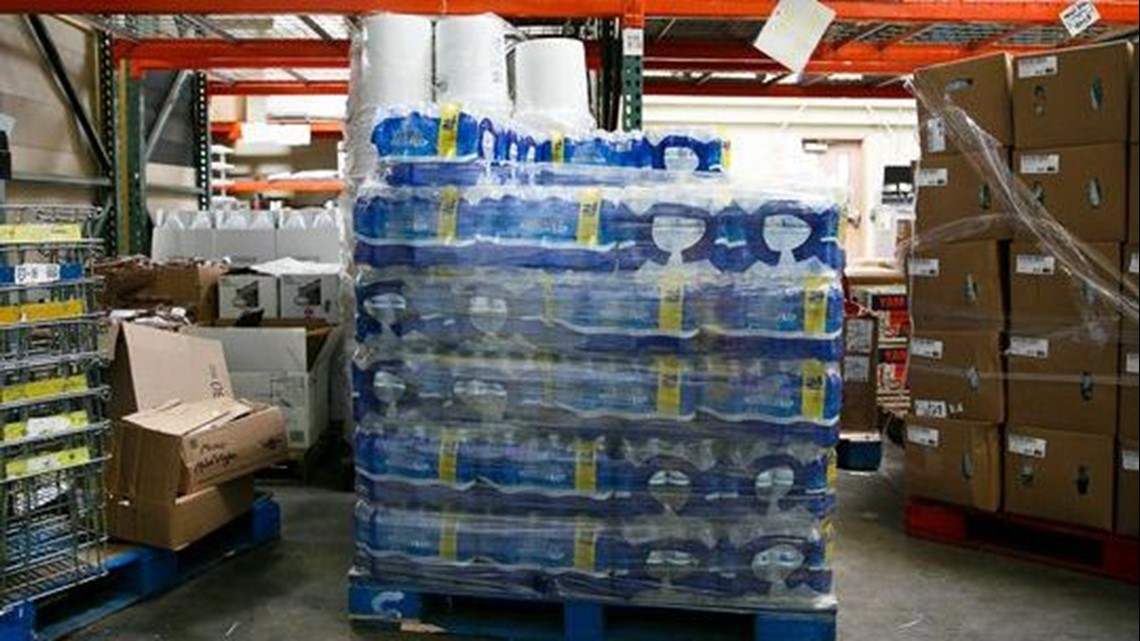
“The city water is affordable, it’s easy to get, it’s abundant and so when you have to alter your system and you have to start paying for something you didn’t have to pay for, then you have to make sure you have systems for those for who that’s a hardship,” said Rick Gaupo, president and CEO of the Marion-Polk Food Share.
“I think the bottled water we’re delivering through Meals on Wheels and to the stations that we’re taking it to, it’s economic relief for people who are already on the margins.”
Long term impact
The long-term impact on Salem’s economy is hard to gauge.
Algae blooms similar to the one impacting the drinking water in Salem have occurred elsewhere.
In a 2015 study of the harmful algal bloom in Lake Erie by the Environmental Consulting & Technology, Inc., said the 2011 event cost $71 million in lost economic benefits; a 2014 event cost $65 million.
bpoehler@StatesmanJournal.com or Twitter.com/bpoehler

